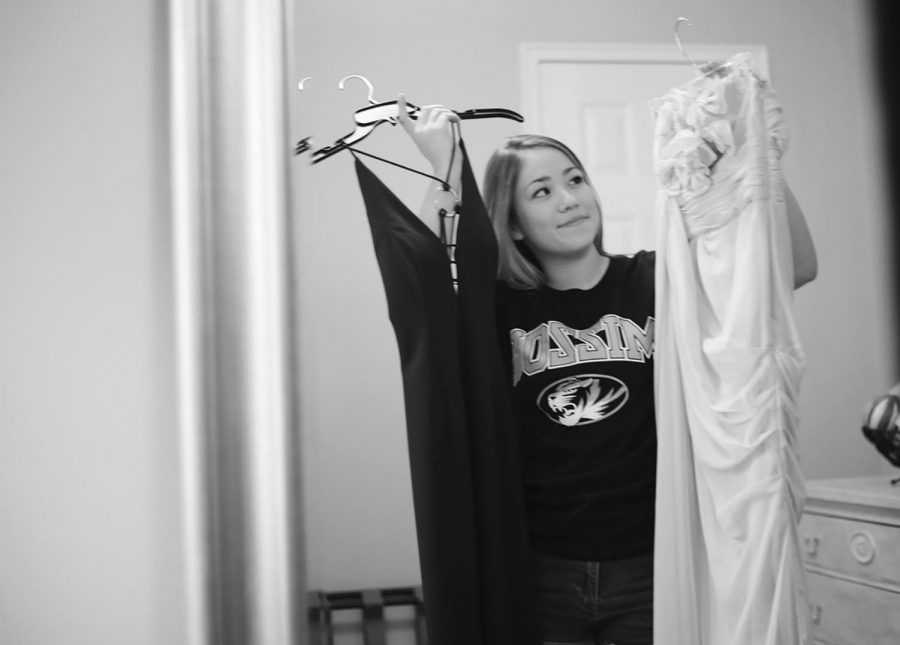Nonprofit provides students with dresses
Because of her wheelchair, she had never been able to have a formal dress before. A personal shopper at the Glass Slipper Project helped her pick a prom dress, and the alterations department fixed it to accommodate her wheelchair. Liz Kores, member of the Glass Slipper board of directors, watched the girl’s face fill with joy.
“To see the look on her face was tremendous,” said Kores. “Her mother was in tears. It was just so special, and it’s moments like that that really make this so important.”
The Glass Slipper Project is a nonprofit organization that, for two days a year, provides free prom dresses, makeup and accessories to any high school junior or senior girl. Girls who come to the pop-up boutique at Price Elementary School are paired with a personal shopper who helps them find a dress among the thousands available.
The organization has helped over 20,000 girls find prom dresses since opening in 1999, according to Kores.
Girls from all economic backgrounds come to the boutique, Kores said. Some may come from homeless or foster care situations, while others may be middle class and financially strained.
“The goal is to make it possible for high school junior and senior girls to attend their proms in style regardless of their financial situation,” Kores said.
Senior Audrey Cooke, who is trying to sell her and her sister’s prom dresses, said she was not aware of any place she could donate to but thinks donating is a good idea.
“It was so fun to wear [my dress], and I loved it, but I would love to see someone else wear it too rather than just having it sit in my closet,” Cooke said.
According to Kores, donating a dress or finding an alternative use for it also has an environmental benefit. This is because most people throw away clothes if they do not know where to put them, and close to 85 percent of textiles end up in landfills.
“Most people, if they have a formal dress, they probably don’t wear it more than once or twice,” said Kores. “It’s not like a pair of jeans that you wear until they rip and can’t be worn again.”
Cooke said as anotheralternative to throwing a gown away after prom, people who are “crafty” could shorten their dress and use it for something else. Reselling a dress for a cheaper price is also an option since many dresses are expensive.
Kores said if you decide to donate, you can put your dress in a bag labeled “Glass Slipper” and drop it into any green and white USAgain box in the Chicago suburbs or city. The closest box to Glenbrook North is located next to the 7-Eleven off Shermer Road.
The Glass Slipper Project has done very well thanks to donations and the work of volunteers, Kores said.
“I think that I would consider it a success if one girl came in and got a dress and got to feel like a princess at prom,” said Kores. “But considering that over the years more than 20,000 girls have had that experience, I would say it’s a tremendous success.”


